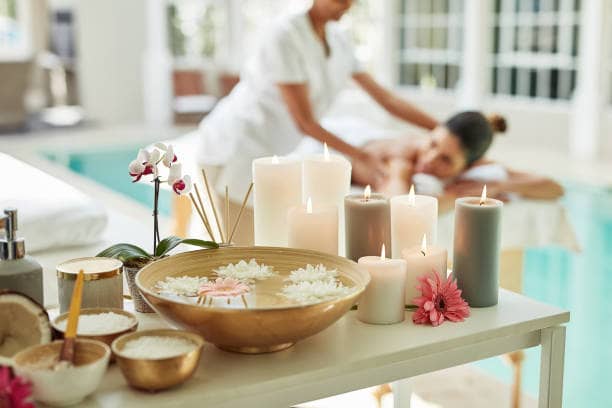
Being an aromatherapy practitioner is a fruitful way to attain health and healing. This guide is suitable if you are looking to improve yourself personally or to assist people and it will guide you through the basics of obtaining the certification, practicing, and developing the necessary skills. In the next sections, there are some important questions that will assist you in kick-starting this gratifying journey.
What qualifications does one need to obtain to be an aromatherapy practitioner?
You do not need to possess certain skills or experience to become an aromatherapy practitioner, but it is advisable to have a certification from an accredited institution, covering the blending of a few essential oils. Graduation may include anatomy.
As it is a practice-based approach, one is usually required to have a qualification recognized by the required body of aromatherapy practitioners especially in the United States National Association for the Holistic Aromatherapy (NAHA) in order to professionally practice aromatherapy. Introductory courses focus on fundamental principles particularly those related to essential oil properties and blending techniques.
Advanced courses may also include anatomy and physiology and the effect of oils on human health. Usually, obtaining a certification involves theoretical knowledge as well as practical work. In the case of client consultations, Training for certification instructs the pupil on how to proceed with such plans.
How long do I need to gain a certification as an aromatherapist?
To obtain the certified aromatherapist status it generally takes from six months to one year of studying. This period is dependent on the level of the course and whether you are studying full-time or part-time. Some other advanced levels may take as long as two years to finish.
Most such basic aromatherapy certification programs can take up to 6-12 months to complete. Nonetheless, if you require advanced education and pursue degrees in other specializations such as clinical aromatherapy and/or clinical aromatherapy courses may take up to two years.
Most of the students, however, choose to study part-time due to employment or other commitments that might worsen the clinical practice enforcement. Also, some courses may lack effective theoretical approaches and require the use of practice or case studies which delay the completion of full certification.

What are the costs associated with becoming an aromatherapy practitioner?
It costs between 500 and 3,000 dollars to become an aromatherapy practitioner depending on the level of certification and the institution. Other costs include books and ursing fees for professional accreditation and essential oils.
Certifications in courses with specialization training can be quite expensive and are estimated to be in the range of 500 to over 3,000 dollars. Basic certification programs may cost anything between 500 dollars to 1,000. Menus for Essential oils, textbooks, and practice practice equipment might also need one’s expenditure.
What skills are essential for an aromatherapy practitioner?
Key skills for an aromatherapy practitioner include knowledge of essential oil properties, blending techniques, and client consultation skills. Understanding safety and having good communication skills are also necessary in developing effective customized treatments for clients.
Those in the field of aromatherapy have to be aware of the different properties of essential oils including the positive effects they have and their disadvantages. Blending techniques have to be mastered since it is the only way one can come up with unique forms for individuals. They also should be aware of how to deal with the clients and assess their requirements along with their health status.
This requires good interpersonal and communication skills because a lot of detailing is required in relaying extensive information on health and treatment options and making sure the safety instructions are plain. Knowledge in anatomy, physiology, and holistic healing methods would equally be advantageous in helping out with treatment processes when the need arises.

How do you find accredited aromatherapy certification programs?
If you are looking at accredited aromatherapy programs, consider the surgery to eliminate sites like the National Association for Holistic Aromatherapy (NAHA) and the Alliance of International Aromatherapists (AIA). These institutions have lists of programs approved for competency.
It is recommended to search for accredited aromatherapy programs through professional bodies such as the National Association for Holistic Aromatherapy (NAHA) and the Alliance of International Aromatherapists (AIA).
Such institutions set up some standards and approve institutions offering a course in aromatherapy only if those offered meet the set educational standards. These listings can help assure that the program is indeed worth your time and looking into as it aims to equip you with skills that will certify you a professional in that field.
How can the use of aromatherapy fit into a holistic practice of health?
Aromatherapy is an adjunct to other holistically oriented therapies such as massage therapy, acupuncture and naturopathy. It might be used to facilitate relaxation, relieve stress and assist in recovering emotional well being. Its addition enables more personal adventure to the healing process.
Aromatherapy is a versatile modality which complements other holistic health practices. For example, aromatherapy may be used in conjunction with massage so as to increase relaxation or therapeutic benefits of the treatment. During acupuncture procedures, several acupuncturists recommend using essential oils in order to help clients be calm and concentrate.
Naturopathic physicians may include essential oils into the program with the goal of enhancing immune activity or mental clarity as only one part of the wellness system. In this scenario, patients and clients are viewed as multi-layered persons, which breathe new life into the art of healing.
Conclusion:
For those who are willing to be prepared, practicing aromatherapy is an absolutely inspiring journey into the field of alternative medicine. Nevertheless, with quality education, practice, and commitment you will help people to regain equilibrium and health with the help of essential oils. Step forward now and begin comprehensively searching for certified courses of study and acquiring the skills required in pursuit of this career.

